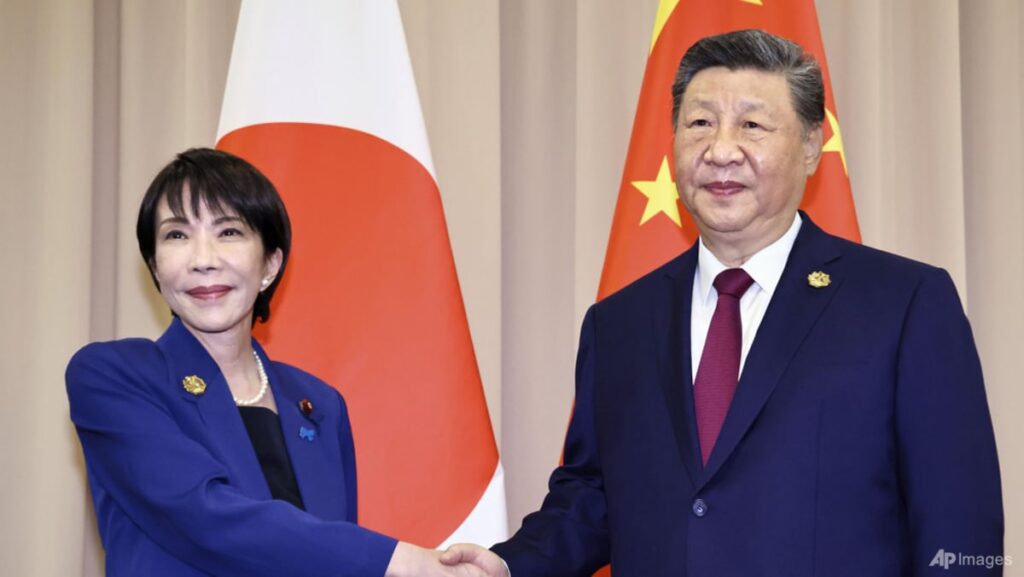BEIJING: China’s sharp pushback against Japanese Prime Minister Sanae Takaichi’s comments on Taiwan may point to deeper concerns, analysts say, in a reaction that goes beyond routine diplomatic theatre.
They believe Beijing views the remarks not as an off-hand comment but as testing a “red line” over Taiwan and advancing what it sees as a “dangerous” effort to “normalise” Japan’s military by eroding post‑war restraints – a trigger that sets this dispute apart from past flare-ups over wartime history or the disputed Senkaku/Diaoyu islands.
Speaking to lawmakers on Nov 7, Takaichi said: “The so-called Taiwan contingency has become so serious that we have to anticipate a worst-case scenario.”
She added that a Chinese attack on Taiwan could trigger the deployment of Japan’s Self-Defense Forces (JSDF) if the conflict posed an existential threat to Japan, whose territory lies just 110 kilometres from Taiwan.
“This is not a one-off gaffe or a case of inexperience – it is targeted,” said Wang Yiwei, director of the Institute of International Affairs at Renmin University of China.
“Treating it (Taiwan) as a country and openly talking about military intervention … there’s no question that this is a substantive escalation,” he added.
Beijing rejects any external interference on Taiwan, which it regards as a domestic matter and a core national interest. It claims sovereignty over the self-ruled island and insists it must ultimately come under its control – and has not renounced the use of force.
Wang described Takaichi’s remarks as “part of a broader, dangerous trend” toward constitutional revision, a clearer security linkage to Taiwan, and growing efforts to frame the issue as an “existential crisis” for Japan.
Her use of the term “existential crisis” is “the same excuse Japan used to justify launching aggression in World War II,” Wang said.
“And this year marks the 80th anniversary of the victory in that war. To say something like this – it’s the wrong statement, at the wrong time, in the wrong place,” he added.
Writing in a commentary piece published on the Weibo microblogging site, Shen Yi, a professor at Fudan University’s School of International Relations and Public Affairs, said Takaichi’s words fit into what he called a “systemic” effort to shed pacifist constraints.
“Sanae Takaichi’s remarks are, in essence, an act of summoning the spirit of Japanese militarism,” Shen said, adding that the risks include reviving militarist narratives and legitimising JSDF roles in forward scenarios.
“China’s task, therefore, is to deter, correct, and ultimately eliminate such words and actions from Japan,” he said.
BREACHING A SENSITIVE RED LINE
It’s a sensitive topic at a sensitive time, experts said. In a year when Beijing marked the 80th anniversary of the end of World War II, linking a “Taiwan contingency” to Japan’s collective self-defence could, in China’s view, be seen as a step over the line.
Lim Tai Wei, East Asia observer at Soka University in Tokyo, told CNA that by explicitly tying a Taiwan contingency to the legal basis for collective self-defence, Tokyo is deemed as “publicly testing the tolerance level Beijing has tried to keep implicit”.
Read the full article here

